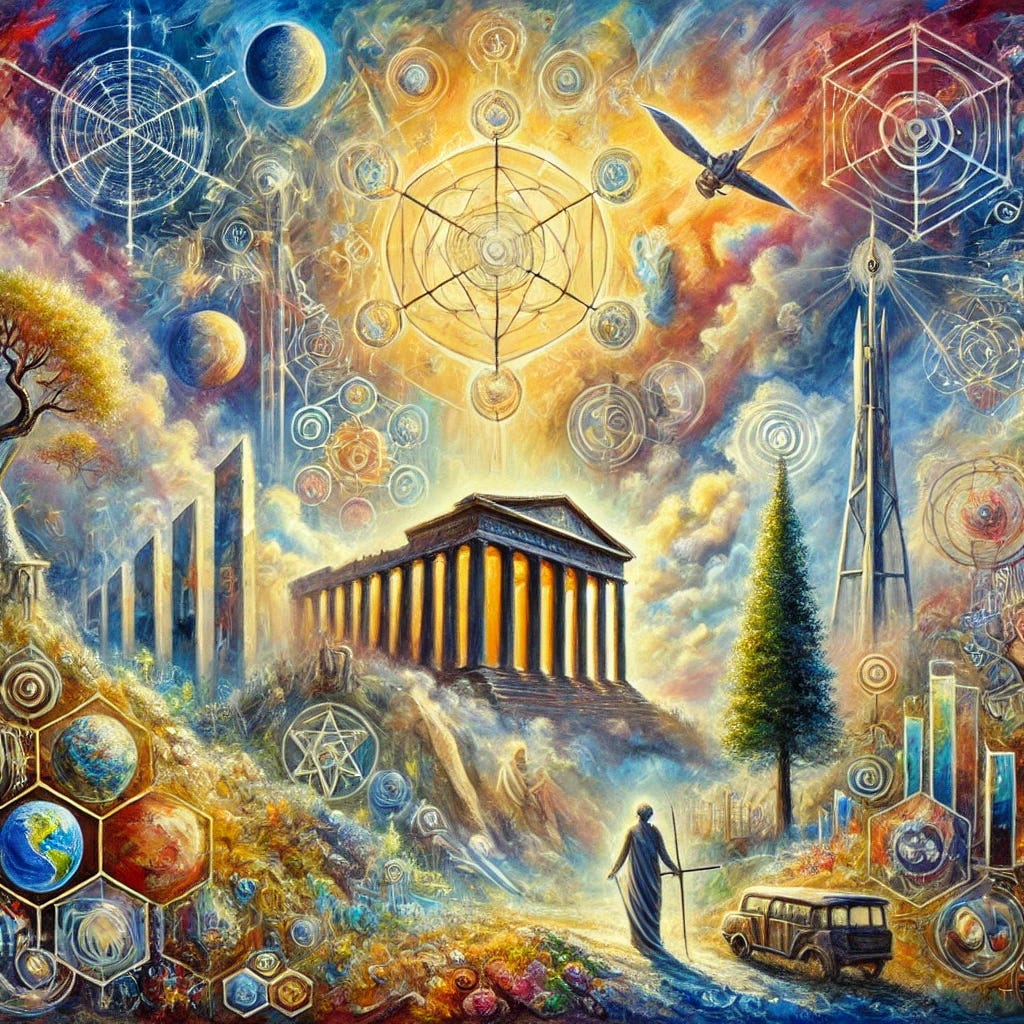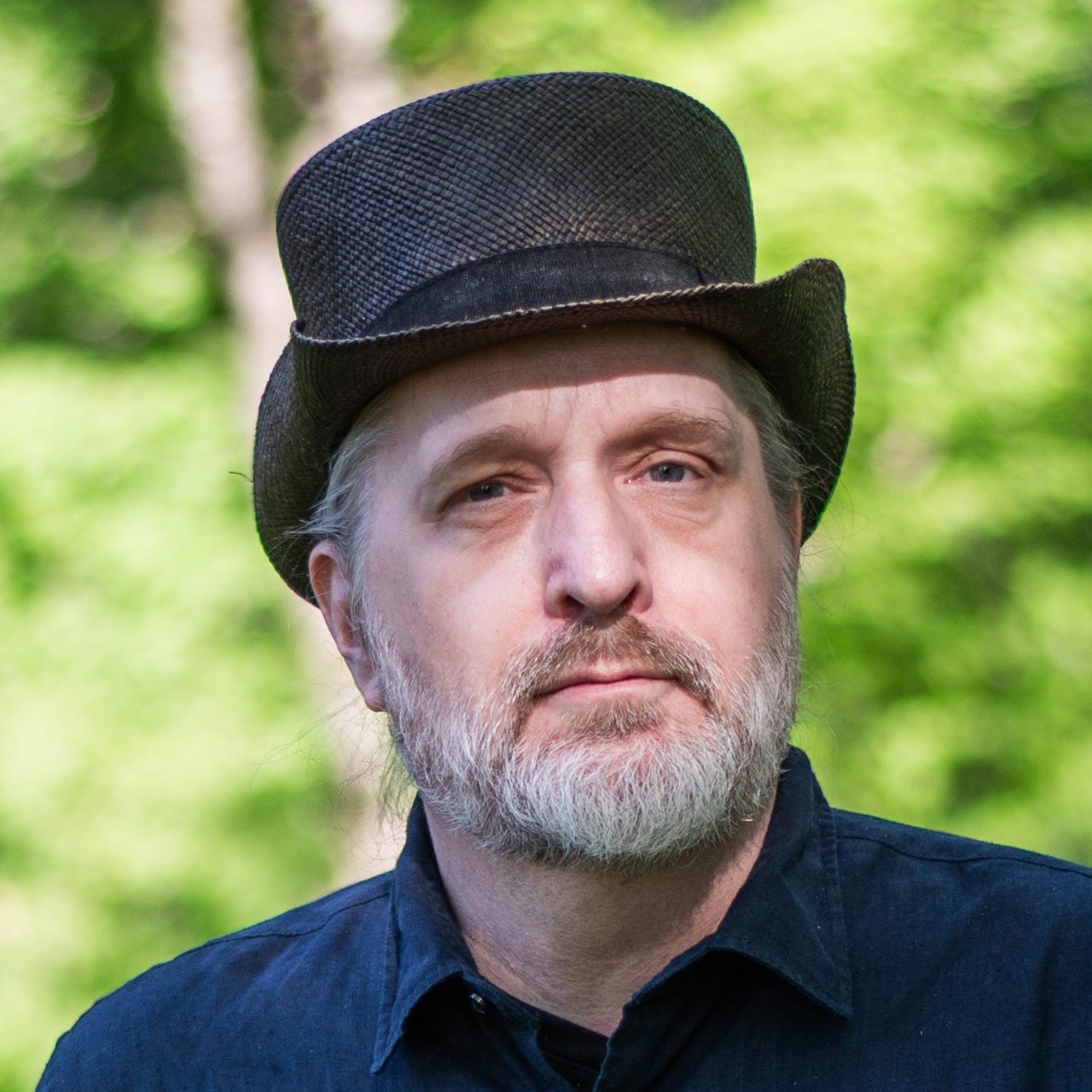I thoroughly enjoyed my first interview with Dr. Jacob Nordangård and highly recommend it to anyone seeking to understand the intricate relationship between the climate change narrative and the Rockefellers.
As a strong supporter of Jacob’s work, I’m excited to help amplify his message and bring attention to his latest book, Temple of Solomon. In this short interview, we delve into the themes and insights of his new publication, offering a glimpse into the profound ideas he explores.
A special thank you to Dr. Jacob Nordangård for sharing his time and expertise.
1. Jacob, the book combines historical research with personal experiences. What made you decide to weave these elements together rather than writing a purely historical account?
The book explains the background to the lyrics on the album “Temple of Solomon” by my band Wardenclyffe. It is made as story with a red thread. I write music and lyrics as a way to let out some steam and therefore it gets more personal. The idea was to combine my artistic side with my analytical side. The book is released together with a soundtrack and contains illustrations by artist Kimmie Fransson.
2. In the book, you explore the concept of "scientific humanism." What drew you to investigate this particular philosophy and its influence on current global developments?
During my Ph.D. studies I investigated the background to the environmental think tank The Club of Rome and found out about the systems theorist Ervin Laszlo and his connections to Professor Oliver Reiser. The latter wrote a number of books about “Scientific Humanism” from the 1940s and onwards, and it soon became evident that these ideas had influenced the drive towards the technological world system that is manifesting today.
3. You write about Dr. John Dee's influence on the Rosicrucian movement. How do you see these historical esoteric movements connecting to modern technocratic aspirations?
As covered by historians like Frances Yates; The enlightenment and the scientific revolution was born out of esoteric thinking and alchemical practices. These movements also fostered the idea of an ideal global society that would be run by a scientific elite (as described in Francis Bacon’s The New Atlantis). Utopia would be achieved by perfecting the things that “God had left undone”.
4. The concept of building a "Temple in the Sky" appears throughout your work. What does this metaphor represent in terms of current technological developments?
Oliver Reiser describes his vision of a “Solomon’s Temple” with satellites in the sky and humanity hooked up and integrated into a technological system. It clearly resembles tech billionaire Elon Musks two grandiose projects Starlink and Neuralink as well as the Fourth Industrial Revolution advocated by the World Economic Forum.
5. You discuss both "dark" and "light" occultism in your book. How do you distinguish between these approaches, and why is this distinction important.
Dark occultism refers to practices that seek to manipulate reality for own selfish ends, whereas light occultism claims to use occult practices altruistically to create a better society for humanity. However, the latter is a recipe for a lot of dangerous cults. It is important to realize that the same ends can be achieved through these two approaches and that evil intentions can hide behind a benevolent facade.
6. The Georgia Guidestones play a significant role in your narrative. What made you connect these monuments to current global developments?
I came up the idea to write a song about the monument almost ten years ago. They are legendary and a lot of theories and speculation has surrounded them since they were erected in 1980. It became obvious for me that the ideals inscribed on the stones, and the accompanying book Common Sense Renewed, shared some similarities with United Nations utopian Sustainable Development Goals/Agenda 21/2030.
7. The book discusses Oliver Reiser's vision of a "World Brain." How do you see this concept manifesting in today's digital age?
United Nations Pact for the future that was decided in September last year is about a Global Digital Compact with digital connectivity for every human on earth. The information gathered in this vast network will be analysed in a “Futures Lab” with the aim to fulfill the global goals with “anticipatory planning”. It will be like a digital crystal ball or world brain that claims to be able to take a look into the future and give guidance on the path forward to avoid a “breakdown”.
8. The theme of artificial intelligence and human consciousness appears throughout the book. What concerns have your research raised about this technological convergence?
Influential players like Elon Musk have advocated merging human brains with artificial intelligence to avoid annihilation from an evil AI. Writers such as James Lovelock see this fusion as a logical step in human evolution that will give rise to new super-intelligent beings that will help “Earth to survive”. Deranged visions like this could mean the end of humanity. However, I believe that these futuristic fantasies are doomed to failure.
9. The book touches on the concept of "manufacturing values." How do you see this process operating in contemporary society?
It is done through the control of the education system. This field influences everything else. You get indoctrinated/programmed from a very early age from the school system, the media apparatus and the entertainment industry. With new technology this can be done even more efficiently. United Nations promotes behavioral design (UN 2.0) in order to convince people of making the “right” choices through the use of “nudging” and “sludging” techniques. This a part of the emerging social credit system.
10. The book ends with a message of hope despite the challenging subjects it covers. What gives you optimism about humanity's future?
This is based on personal experience. I believe that a force is brought to life within humanity if we as a species are threatened. It brings together all the bright minds that have the capacity to overthrow the overlords that seeks to dominate and subjugate us. I see this as a built in defense mechanism. No machine intelligence can beat the “natural intelligence” in the end.
11. For readers who want to follow your work and/or buy the book, what's the best way to stay connected with your research and buy this or other books.
You can follow me on Substack and purchase my books from Pharos Media.
Temple of Solomon: https://pharosmedia.se/shop#!/english/products/temple-of-solomon
Listen to the music at: https://wardenclyffe.bandcamp.com/
More info: https://jacobnordangard.se/en/
I appreciate you being here.
If you've found the content interesting, useful and maybe even helpful, please consider supporting it through a small paid subscription. While everything here is free, your paid subscription is important as it helps in covering some of the operational costs and supports the continuation of this independent research and journalism work. It also helps keep it free for those that cannot afford to pay.
Please make full use of the Free Libraries.
Unbekoming Interview Library: Great interviews across a spectrum of important topics.
Unbekoming Book Summary Library: Concise summaries of important books.
Stories
I'm always in search of good stories, people with valuable expertise and helpful books. Please don't hesitate to get in touch at unbekoming@outlook.com
For COVID vaccine injury
Consider the FLCCC Post-Vaccine Treatment as a resource.
Baseline Human Health
Watch and share this profound 21-minute video to understand and appreciate what health looks like without vaccination.






The President of Romania, who is a whistleblower, is under threat of a coup, and he appears to be leading the charge for freedom for Romania and the entire world. He reveals his intention to free humanity from the grip of the evil globalists who want to start WWIII to bring in fascism. Perhaps this is the turning point that humanity has been awaiting and the opportunity for the peoples' triumph against evil.
https://x.com/RealAlexJones/status/1879259359668031973
This good article brought to mind memories of my youth. Because I had a brother probably 60 IQ points above mine and we were born in successive years as close is humanly possible, he was my mentor. To even get close to his intellectual sphere (who was I kidding!) I read above my grade level, feverishly devouring required reading books for seniors when I was 15.
That 1st book was by Fyodor Dostoevsky, The Brothers Karamazov. Then onto The Double. At first I thought Fyodor was creepy and the only thing I gleaned from his writing was the ability to pronounce difficult names with ease. It wasn't till I got to Crime and Punishment that the dawn ushered in the light and I reread The Brothers Karamazov with different eyes.
During this time, Alisa Zinovyevna Rosenbaum made the scene. Known as Ayn Rand, her books challenged the accepted norm, and I loved them all . Then in walks Aleksandr Solzhenitsyn. The First Circle, Ivan Denisovich and Gulag Archipelago. These 3 Russian authors were the very best I have come across in my life. Their exposure and understanding to life's meaning and what it takes to be successful has nothing to do with money or power.
Their bodies of work has shown that life's success is due to the manner in which you navigate the hills and valleys of existence and what that journey develops into.
With the likes of those 3 authors, who explained unimpeachable standards of behavior and success in my mind, there's no need to venture forward, they said it all. Now, if only I could get 200 Years Together, in English, I'd be a happy girl.